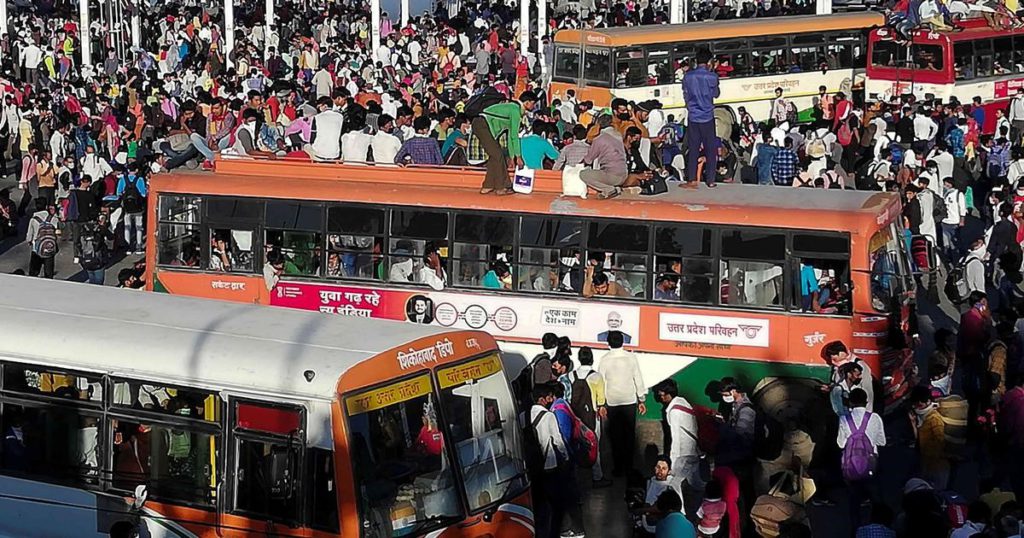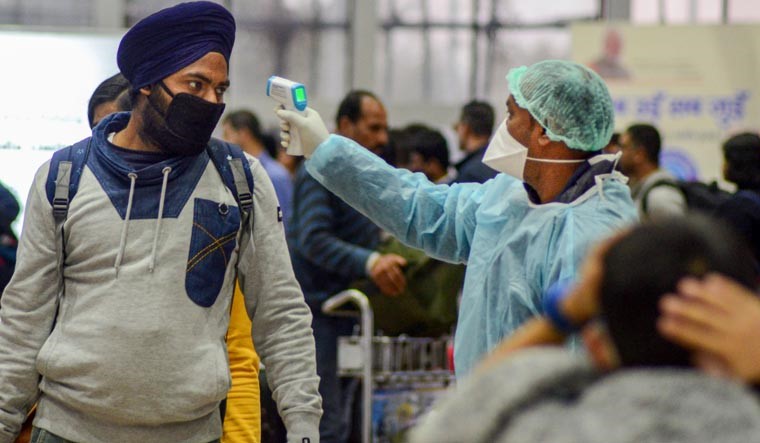With barely four hours to spare in order to arrange for our daily lives and livelihood on the 24th address, Prime Minister Modi put the entire nation on lockdown due to the Coronavirus Pandemic. The aftermath has been chaotic at best for the upper class and hearts wrenching at worst for the lower masses of the nation, with no alternate support structure for the poor it won’t be an understatement to call this a supposed death sentence for the daily wage labourer. The exodus of migrant workers that was triggered after the lockdown decision was unforeseen and has caught the government on the backfoot, with certain relief packages being announced by the state and central governments to mend the situation, still, the future for 41 million daily wage earners seems bleak.

Lockdown under The Epidemic Disease Act of 1897
The lockdown has been introduced on the back of acts such as the pre-independence Epidemic Disease Act of 1897 and Disaster Management Act (DMA). The issue however remains is that of the validity and constitutionality of such acts that have put the entire nation on a supposed house arrest is not clear.
When we look at the Epidemic Disease Act of 1897, it shows that the Colonial Government had a law to handle a crisis like an epidemic. Despite the flaw that It equipped the administration with excessive powers, the issue however arises is that it has not undergone the test of constitutionality or whether it can be utilized in the violation of existing laws, keeping in mind that this is a colonial law introduced by a ruthless government, which is most importantly pre-constitutional in nature.
When looking at the specific clauses of the EDA such as the likes of Section 2 sub-clause one “ if [it] thinks that the ordinary provisions of the law for the time being in force are insufficient for the purpose, may take, or require or empower any person to take, such measures and, by public notice, prescribe such temporary regulations to be observed by the public or by any person or class of persons as [it]shall deem necessary to prevent the outbreak of such disease or the spread thereof” as pointed out earlier this certainly gives the administration widespread powers, the issue, however, is that whether it would stand the test of the constitution in the existing paradigm. Whatever the the case may be the right of the marginalized sections of the society must be kept into consideration, when bringing such an Act into force.
Within the yardstick of DMA, the current crisis “coronavirus pandemic” has been termed as a “disaster”, which calls for the national government to establish a national multi-tiered disaster management authority (under section 3 of the DMA). So as to deal with the current situation at both the local as well as the national level. Section 17 and 19 recommending establishing a state-level committee in the former section 17 and providing guidelines for relief under section 19. Finally, section 30 can be looked upon for the powers and function of the District Authority.
Possible Solutions for the Coronavirus Pandemic

As of the writing of this article, a rough total of more than seven hundred-thousand cases of Corona Virus have appeared worldwide. The situation is extremely dire in the continent of Europe, the USA and with more than a thousand cases in India. The looming fear of crippling financial measure such as a financial emergency may become a possibility, along with the breakdown of supply chains all across India.
Thus, with no end in sight when it comes to the current coronavirus pandemic we can only rely on proper public social distancing and citizenry, urging the members of the society to not hoard essential commodities, so as to put a strain on an already weakened supply line, temporary shelters for the migrant workers, so as to prevent the spread of the virus into the hinterlands.
Finally, even if the situation appears dire in Kerala’s social investments in rural health care, universal education, decentralization of powers and resources and women empowerment stands tall even as the toll rises, with impressive policies by the state government to deal with the situation. This effort can be seen as a model for the rest of the nation with efforts to emulate it on a larger if not on a national scale. In order to deal with the situation.
As of now, it is no longer the time for finger-pointing as it depends both, upon us, as citizens and the government to deal with the situation to the best of our abilities as we can.
Libertatem.in is now on Telegram. Follow us for regular legal updates and judgements from the court. Follow us on Google News, Instagram, LinkedIn, Facebook & Twitter. You can also subscribe for our Weekly Email Updates. You can also contribute stories like this and help us spread awareness for a better society. Submit Your Post Now.

